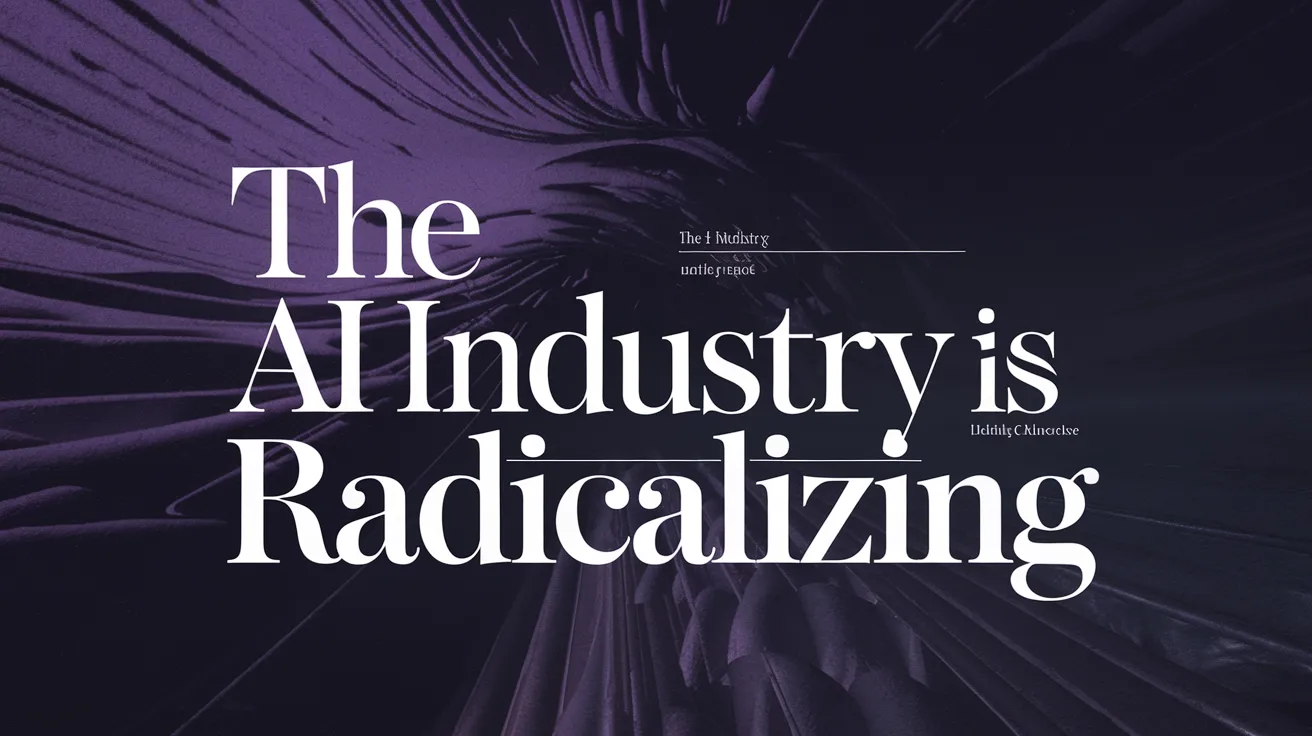The AI Industry Is Radicalizing

The narrative surrounding artificial intelligence unfolds at a dizzying pace, with events appearing almost predestined. Recent stories circle around figures like Chungin “Roy” Lee, who, after transferring to Columbia last fall, utilized AI to navigate through school, cheat on internship interviews with major firms like Amazon and Meta, then took to social media to promote his AI tool. Following a series of disciplinary actions, including probation and suspension, Lee opted out of traditional education entirely to launch his start-up, Cluely, which offers a service that enables users to “cheat on everything” using AI during meetings and sales calls. Just last month, Cluely secured $15 million in funding led by Andreessen Horowitz.
Lee remains unapologetic, asserting that the emergence of omniscient AI is unavoidable and will automate every job. He argues that the terminology around “cheating” is provocative rhetoric meant to garner traction for the concept. According to Lee, “We have no choice but to keep spreading the word: Do not think it’s cheating.” He expresses a belief that as AI improves, it will fundamentally change performance expectations, with chatbots already rendering many white-collar jobs obsolete—and he’s convinced this is only the beginning.
Lee’s confidence in AI mirrors that of OpenAI CEO Sam Altman, who asserts that the singularity—the point when technology surpasses human control—has already begun. In a recent essay, Altman mentioned the accelerating pace of technological progress and the potential to reshape existing structures as AI becomes more embedded in society.
A Growing Divide
Within the tech landscape, a significant divide is developing between fervent AI proponents and its detractors. Advocates, primarily situated in Silicon Valley, emphasize AI as a transformative force capable of solving pressing societal issues while dismissing immediate concerns like job displacement and ethical considerations. Meanwhile, critics include veteran scholars and activists who vehemently reject the narrative of inevitable AI supremacy. For example, Emily Bender, a computational linguist, has termed many AI systems a “racist pile of linear algebra,” emphasizing the biases inherent within them.
The juxtaposition unfolds with increasing fervor, as industry heavyweights and skeptical voices clash over the fundamental nature of AI and its consequences. While proponents proclaim the incredible potential of AI to revolutionize life, skeptics argue against the overhyped expectations, openly declaring that its perceived failures substantiate their cautions.
This polarization has resulted in a discourse where both camps articulate their stances with such confidence that they overshadow the nuanced reality surrounding AI capabilities. As AI technology pervades daily life—from chatbots on popular platforms to pivotal decision-making tools—it raises important questions about how society adapts and responds to this rapid transformation.
Searching for Common Ground
As generative AI becomes ever more central to our daily experiences, relations between advocates and skeptics convolute, creating a landscape where agreement becomes rare. However, a shared recognition of AI’s transformative power exists, suggesting potential avenues for dialogue. AI’s capability to streamline tasks and facilitate discoveries could also pivot discussions toward its ethical implications and accessibility.
The challenge lies in navigating the fine line between embracing progression and addressing the adverse effects elicited by large-scale adoption of AI technologies. Recent studies and discussions among technology leaders indicate that a balanced approach may offer a more inclusive future—one in which AI uplifts rather than diminishes jobs, opportunities, and relationships.
Just as the historical implications of new technologies have shaped societal relationship dynamics, current transformations induced by AI provoke examination into who benefits and who bears the costs. Fostering a comprehensive understanding of AI’s potential while addressing the fundamental concerns surrounding its development will be vital as stakeholders navigate forward.